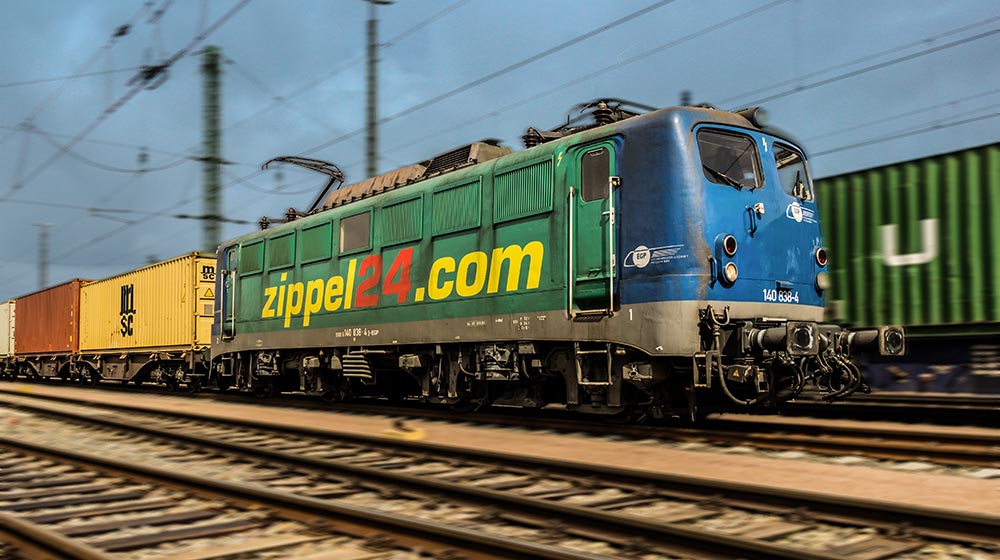
DVZ Redaktion
DVZ: Why are trains so attractive for your company?
Axel Plass: In the beginning, 17 years ago, it was purely a capacity expansion. Only afterwards did the climate aspect become increasingly important. Today, the Konrad Zippel forwarding company is primarily a “rail forwarder” for its customers.
What quantities or services do you handle by rail and what percentage of your total freight volume or service does that represent?
Last year, we operated around 3,000 block trains from Hamburg and Bremerhaven. This corresponds to 270,000 TEU – almost exactly 75 percent of our total container shipments.
How are the transports actually handled – block train, groups of wagons: as single wagons, in combined transport? What is the average distance, how often do the trains run?
We schedule up to ten block trains daily, which are assembled from individual wagon groups. Zippel serves every rail-capable terminal/depot in Hamburg, Bremerhaven and Wilhelmshaven. A few years ago, the distance of our target destinations (Rostock 120 kilometers, Berlin 280 kilometers, Leipzig 350 kilometers; Elsterwerda 425 kilometers) was still considered “not suitable for rail” because it was too short.
Do you see a need in your company to handle even more traffic by rail?
A large proportion of the containers that are still transported by road could – without any problems – be shifted to rail. What is needed is the will of the shipper and the skill of the freight forwarder. Most of the time, the former is lacking.
What are the brakes on the shift to rail?
On the goods side, shipments by rail require large volumes, low volatility and intelligent production control. On the carrier side, capacities and reliable processes are required. Only when all these prerequisites are met is the brake solved.
The company
Konrad Zippel Spediteur GmbH & Co KG is the heart of the group. From Hamburg, the company organizes all container transports by train and truck in local and long-distance traffic. Z-Liner Road operates in long-distance transport, while Z-Liner Rail mainly operates in short-distance transport around the container terminals in Berlin and Schkopau. Zippel Logistik near Rostock is responsible for the transport of groupage, part and full loads.

If there are problems with the railroad, for example with punctuality, will they be sorted out?
Booking on time” is not always enough to actually transport goods on time. At Zippel, with our own fleet of trucks, there is still a procedure that can “save” us and the customer. But only very few providers can do that.
Do you expect your company to use rail transport more, equally or less intensively in the future?
If there is sufficient capacity for us both on the sea terminal side and on the route availability side, we will be able to get even more shipments off the highway in the future.
At the moment, however, the situation at the sea terminals is slowing us down massively. Here, the performance of the seaside is currently leading to a massive shift back!
What could the railroads do to make your company use rail services even more than it does now?
We are now a “railroad” ourselves – everything that neither Deutsche Bahn nor the private sector are capable of supplying, we now successfully produce with our own resources. In a nutshell, it looks like this. The road mode of transport is practically beating down the door of a freight forwarder: Trucks are always present everywhere. The situation is different with rail: here, the forwarder has to approach the parties involved on his own initiative. Before the first rail shipment, a potential new user faces a long, sometimes rocky road. If one wants to go this way, however, nothing stands in the way of a long and intimate relationship.
Do you have a special request?
Contact us if you would like to learn more about the efficiency of German logistics!